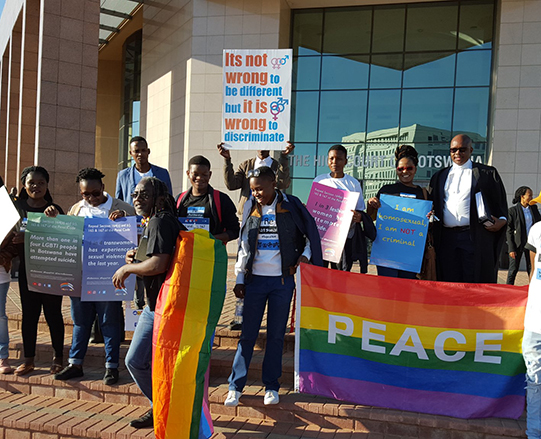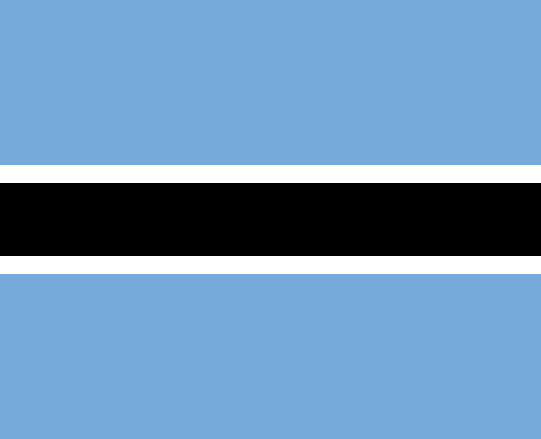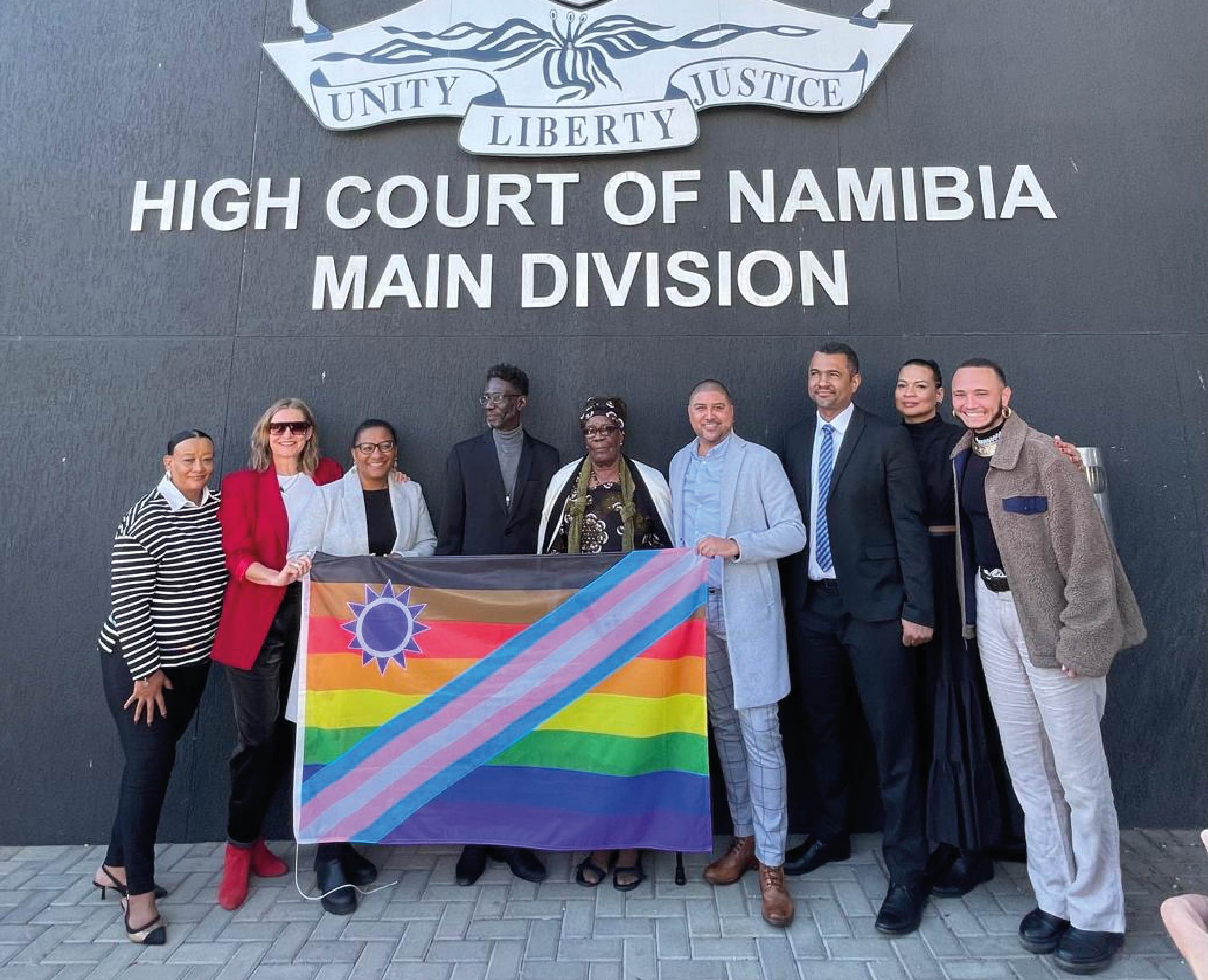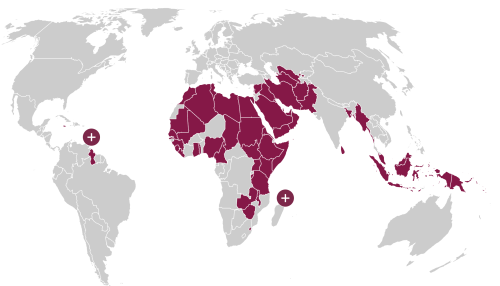Today’s High Court decision in Botswana to strike down antiquated laws criminalising consensual same-sex sexual conduct is a huge win for the human rights of LGBT people in the southern African country and beyond, says the Human Dignity Trust (HDT).
In a broad and forward-thinking reading of the Botswana Constitution, the three-judge bench unanimously ruled that the criminalising laws were discriminatory against LGBT people and breached their rights to privacy, dignity and liberty.
‘We heartily congratulate the Botswanan and southern African LGBT human rights defenders and lawyers who have worked tirelessly on this pivotal case. LGBT people in Botswana have had their constitutional rights confirmed today and can now be more hopeful of a future free from discrimination, harassment and violence,’ said Téa Braun, Director of HDT.
‘This judgment, which comes less than three weeks after a deeply regressive decision on the same issue from the Kenya High Court, is legally sound, ground-breaking and courageous, and is a ray of hope for all those LGBT Africans looking to their legal systems for justice and fair treatment,’ she added.
Sections 164, 165 and 167 of Botswana’s British colonial-era Penal Code outlawed ‘carnal knowledge of any person against the order of nature,’ attempts to commit carnal knowledge and acts of ‘gross indecency’ respectively. Those convicted under these laws faced jail sentences of up to seven years. Section 167 was updated in 1998 to apply to same-sex acts between women as well as men.
A court case from 2003, in which it was argued that these sections of the Penal Code were unconstitutional, was dismissed by the Court of Appeal, so today’s victory is especially welcome as it aligns Botswana’s criminal domestic laws with both the country’s 1966 Constitution and international human rights law, says HDT.
This judgment, which comes less than three weeks after a deeply regressive decision on the same issue from the Kenya High Court, is legally sound, ground-breaking and courageous
Botswana has shown increasing tolerance towards LGBT people in recent years.
In 2016, the Court of Appeal sent a strong and progressive signal that LGBT people have the same human rights as everyone else in the country, whilst in 2018 the President said they are, ‘Just like other citizens (…) and deserve to have their rights protected.’
In a statement released today, Anna Mmolai-Chalmers, CEO of rights organisation The Lesbians, Gays and Bisexuals of Botswana, said, ‘This incredibly life-changing decision, although it does not right all the wrongs done to individual members of the LGBT community, is a step towards restoring our dignity as human beings.’
The victory at the High Court today was notable given the generally hostile climate towards the human rights of LGBT people across Africa. Of the continent’s 53 countries, 32 continue to criminalise homosexuality.
Notes to editors
- The Human Dignity Trust works with LGBT activists around the world to defend human rights in countries where private consensual sexual activity between adults of the same sex is criminalised. We link the international legal community with local organisations who are challenging laws that persecute people on the basis of their sexual orientation and/or gender identity.
- Visit our interactive map to see which countries across the world still criminalise LGBT people.
- Botswanan LGBT rights organisation, The Lesbians, Gays & Bisexuals of Botswana was admitted as amicus curiae (friend of the court) in this case, and was supported by the Southern Africa Litigation Centre.
For more information contact:
Emma Eastwood, Head of Strategic Communications, HDT
T: +44 (0)20 7419 3770 / E: [email protected] / Twitter: @HumanDignityT




